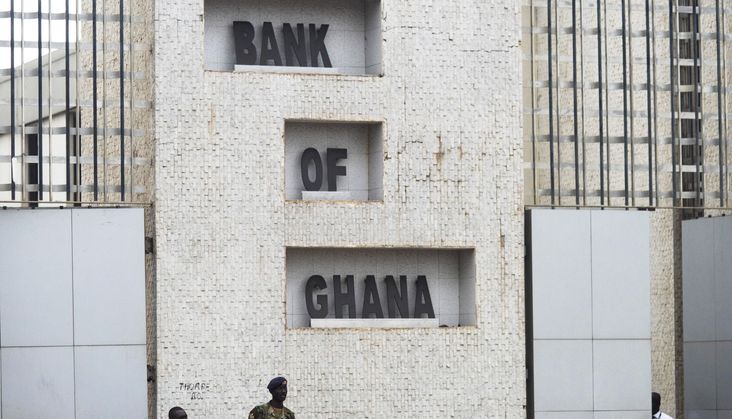The Finance Ministry has cautioned against unnecessary attacks on the Bank of Ghana (BoG).
Deputy Minister of Finance John Kumah says the propaganda and unnecessary attacks at the central bank only result in increased market volatility, panic selling of assets, and can trigger a chain of events that can affect our overall economic stability.
His comments come after the National Democratic Congress (NDC) Members of Parliament have said they would march to occupy the premises of thee BoG if the Governor, Dr Ernest Addosn fails to resign.
They have given Governor Addison up to 21 days, starting today Tuesday Augist 8 to leave office due to the challenges the central bank is going through.
Addressing a press conference in Accra on Tuesday, August 8, the Minority Leader Dr Cassie Ato Fortson said “we call for the resignation of the Governor of the Central Bank and his deputies within 21 days from today. We are resolved to embark on popular action to occupy the Central Bank and drive out the team of inept, callous and criminal mismanagers of the finances of this country and Save the Bank of Ghana. The March to Ensure Accountability will begin in 21 days if the Governor of the Bank of Ghana does not do the needful and pack bag and baggage out of that sacred institution that he has so desecrated. Dr Ernest Addisson Must Go! There has to be an end to impunity and it is now!”
Dr Forson further stated that the more troubling fact is that, having brought the Bank of Ghana to this terrible financial state, “the Governor and his deputies, have found it prudent and expedient to invest $250 million (GHC2.8 billion) on another Head Office building somewhere at Ridge. In our circumstances, this is the height of insensitivity in the management of the finances of a troubled country.”
“The BOG’s illegal printing of money is responsible for the depletion of Ghana’s external reserves which resulted in the unprecedented depreciation of the Cedi, the main cause
of hyperinflation in 2022. It is important to state that the Governor breached section 30 (7) of the Bank of Ghana Act, 2012 (Act 612 ) and Section 60 of the Bank of Ghana Amendment Act, 2016 (Act 918).
“An estimated 850,000 people were further reported to have been pushed down the poverty line as a result of the hyperinflation in 2022.”
But in a statement reacting to the Minority, John Kuamh who is also a lawmaker for Ejisu said in a statement that “Ignore this funny NDC Propaganda about the collapse of the Bank of Ghana (BoG). BoG is Solid ! The NDC is funny! It’s not true that a recapitalization levy is to be introduced for BoG , the Central Bank hasn’t collapsed.
“The main source of income to the Bank is from government transactions i.e. fees and charges on all government transfers, the bank’s investments in marketable instruments and also earnings from non-marketable holdings of the Bank. Given that government transactions have gone down, naturally, the income of the bank will go down. Also, because of the debt restructuring, earnings on their holdings on markable and non-marketable bonds will go down.
“Beyond this, the Bank is solid and is capable of performing its core function. Article 183 clause 2 (c) of the 1992 constitution enjoins the Bank of Ghana to promote and encourage economic development in the country , hence there is nothing untoward in the actions of the Central Bank to support the state in its economic recovery efforts. It is important to further highlight that a negative balance sheet by a Central Bank is not unusual, in fact, most Central Banks around the world run negative balances to achieve the overall economic anchor objectives of a Central Bank. ‘History clearly illustrates this. Several central banks had negative equity yet fully met their objectives – for example, the central banks of Chile, Czechia, Israel and Mexico experienced years of negative capital. But throughout, financial and price stability were maintained.’ – Bank For International Settlements Bulletin No.68.
“According to Nordstrom and Vredin (2022), a central bank’s credibility depends on its ability to achieve its mandates. Losses do not jeopardise that ability and are sometimes the price to pay for achieving its aims.
“Such propaganda and unnecessary attacks at the central bank only result in increased market volatility, panic selling of assets, and can trigger a chain of events that can affect our overall economic stability.”


